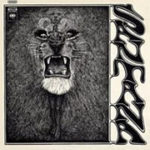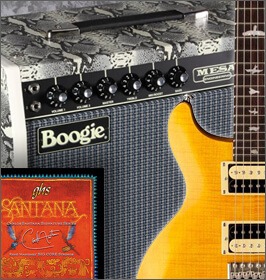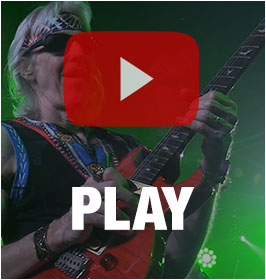Santana by Santana
Sound of Santana

And finally, one of the greatest changes occurred with the other player that Carabello brought in: Jose “Chepito” Areas, an accomplished timbalero and conguero who was well-known in his native Nicaragua. With the addition of Areas, the band’s percussion went from a minor rhythmic enhancement to a major sonic drive. The fiery Chepito (stories of his volatile temperament are legendary) kicked the band into high gear, and set the stage for a whole new sound.
The sessions started again in May of ’69, and are the ones that were immortalized on the album. Before the album was finished, Bill Graham had convinced the Woodstock Festival promoters to include the band in the show, where Santana played for nearly half a million listeners on Saturday, August 16, 1969.![]()
One month later, the album as released. And, in March of the following year, the film, Woodstock, was released — including Santana’s impassioned performance of “Soul Sacrifice.” Eventually, the album sold more than 4 million copies, and made Rolling Stone’s 2003 list of “the five hundred greatest albums of all time.”
While it didn’t have the polish of the followup, Abraxas, Santana by Santana, with it’s groundbreaking inclusion of Latin percussion into rock music, the deceptively simple organ chops of Gregg Rolie, and the raw power of a budding guitar hero, captured a musical spirit that still holds up today.
Santana by Santana Song List
Waiting — an instrumental track built mostly around a Rolie organ jam, with a conga solo by Carabello, and lifted in the coda by Santana’s rising guitar riffs. A perfect example of the improvisational skill of both Rolie and Santana, whose “jams” become melodies. In G minor.
Evil Ways — written by Willie Bob guitarist Sonny Henry, and recorded by Bobo the year before. Bill Graham suggested the cut, and it become the biggest hit (and still most-often played track) on the album. In G minor.
Shades of Time — classic rock track, sung by Rolie and harmonized by Carlos. Includes a beautiful, raw melodic solo by Carlos with some trademark Latin-tinged blues riffs. In G minor.
Savor — really a “part 2” to Shades of Time, as one flows into the other. Savor is another organ jam rendered memorable by Rolie’s approachable, melodic style. This piece is also driven by Chepito’s smoking timbale playing. In G minor.
Jingo — based on a jam created by Nigerian artist Babatunde Olatunji, Jingo is a mesmerizing chant piece, broken up by simple guitar hooks, swelling organ chords, and a conga solo. In B minor.
Persuasion — fairly straight ahead blues-rock song, with vocals growled out by Rolie. Although it features an interesting little instrumental interlude, it never achieved the status of Evil Ways. In F minor.
Treat — The only song on the album with Rolie on piano, it starts slow and mellow, crescendos into the guitar solo, then slides back down into a piano/guitar conversational improvisation. In G minor.
You Just Don’t Care — Somewhat pedestrian blues jam, with Rolie’s raspy vocals thrown in. Some nice solos in this song, which still don’t raise it to the level of Waiting or Jingo. In E minor.
Soul Sacrifice — immortalized by the film Woodstock, this has, for decades, been of staple Santana shows. Several live versions have appeared on albums, as well. In A minor.



